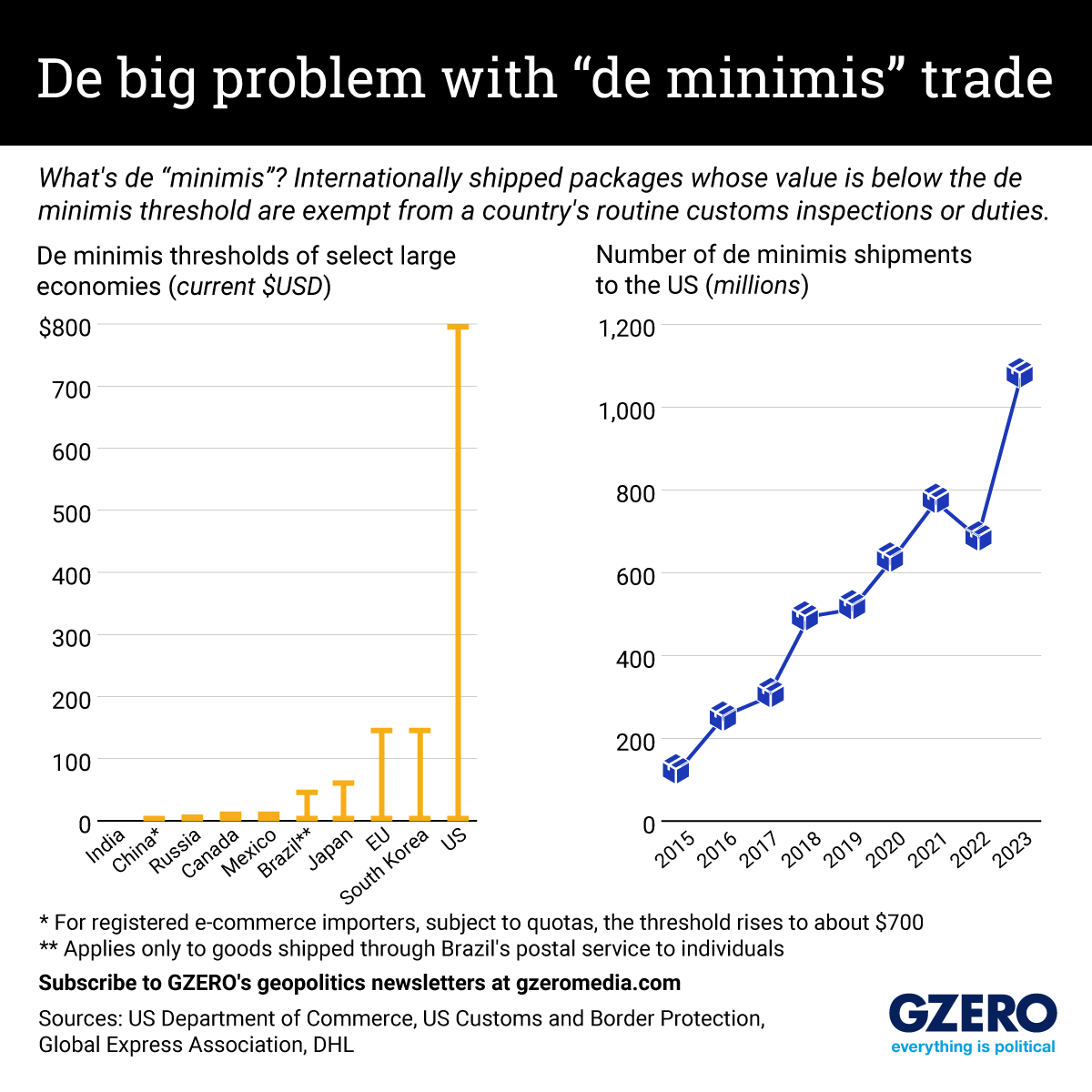Supporters of the current threshold say it streamlines trade, particularly in a world in which e-commerce is soaring. But critics point out that the US threshold is way higher than anyone else’s, and that foreign exporters often exploit that to evade import duties and inspections.
Chinese e-commerce exporters in particular use de minimis rules to skirt US tariffs, while drug cartels ship fentanyl to the US in a similar way. Someone even tried to import a helicopter from Venezuela by breaking it up into small packages labeled as “personal effects.”
The Biden administration recently cracked down on Chinese exporters’ abuse of de minimis thresholds, and the incoming Trump administration is certain to hit this issue even harder.
Here’s a snapshot of how the US threshold compares globally, along with a look at the massive rise in de minimis shipments to the US over the past 10 years.
